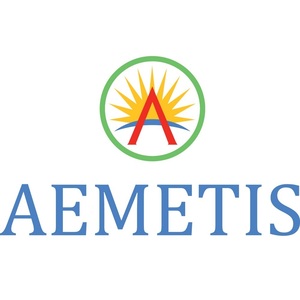Aemetis reports progress with biofuel, biogas projects

November 28, 2023
BY Erin Krueger
Aemetis Inc. expects to secure the authority to construct air permit for its proposed sustainable aviation fuel (SAF) and renewable diesel project in early 2024, according to comments made by Chairman and CEO Eric McAfee during a third quarter earnings call held Nov. 9. McAfee also discussed the company’s biogas, ethanol, biodiesel and carbon capture projects during the event.
The Aemetis Biogas subsidiary during the summer of 2023 closed its second $25 million USDA loan guarantee to build biogas digesters at eight additional dairies, McAfee said. That closing brought the subsidiary’s total to $50 million in loan guarantees secured under the USDA’s Rural Energy for America Program to build 15 dairy digester projects that are designed to produce a combined 400,000 MMBtus of renewable natural gas (RNG) annually. A third $25 million USDA guaranteed loan is expected to close by the end of this year, subject to potential delays caused by a government shutdown, McAfee added. Work on a fourth, fifth, sixth, seventh and eighth guaranteed loan are in various steps of the process.
Aemetis Biogas now has seven fully operating diary digesters, according to McAfee, and is currently constructing additional digesters at 10 dairies. Those facilities are expected to generate approximately 400,000 MMBtus per year of RNG. A total of nine digesters are expected to be operational by the end of 2023.
Advertisement
McAfee also discussed the company’s proposed Riverbank project, a proposed 90 MMgy biorefinery located in California that will produce SAF and renewable diesel. Aemetis previously received approval for the primary permit of the construction of the project. The Use Permit for the 125-acre project site and California Environmental Quality Act approval were secured in September. McAfee said the authority to construct air permit is expected to be approved in early in the first quarter of 2024.
During the call, McAfee confirmed that the company’s corn ethanol plant in Keyes, California, is currently operating. The company completed an extended maintenance and upgrade cycle at the facility earlier this year that extended throughout most of the first and second quarters. The plant restarted in late May and ramped production through June and July, he said.
Advertisement
Upgrades made at the Keyes plant include the accelerated installation of a new Allan Bradely Distributed Control System with artificial intelligence capabilities, along with several other imported process upgrades, McAfee said. Over the next few months, Aemetis plans to complete the installation of a $10 million solar microgrid with battery backup adjacent to the Keyes plant. The company has also completed process engineering design for a mechanical vapor recompression unit and has begun equipment fabrication for installation late next year.
Aemetis also has a biodiesel plant located in India. McAfee said that facility expanded to 60 MMgy earlier this year. The plant uses an enzymatic process to produce high-quality biodiesel from lower-cost, lower-grade feedstocks. To meet rapidly growing demand, McAfee said Aemetis plans to expand the facility’s capacity to 100 MMgy in 2025. The company also plans to export refined tallow from the India facility to renewable diesel producers in the U.S.
In addition to biofuels, Aemetis is also developing a carbon capture and sequestration (CCS) project. The company currently captures 150,000 metric tons per year of CO2 emissions from its Keyes facility. That CO2 is currently supplied to local customers for reuse. In the future, the company plans to sequester CO2 produced at the Keyes plant, Riverbank facility and biogas operations. Phase one of the project would involve the injection of 400,000 metric tons per year of CO2 into two sequestration wells the company plans to drill near its biofuel production site in California. In a planned phase two development, the wells would also sequester CO2 generated by third parties, with the capacity to inject a combined 2 million metric tons of CO2 annually.
Aemetis reported revenues of $68.7 million for the third quarter, down 4 percent when compared to the same period of last year. Gross profit was $492,000, down from $1.1 million. Operating loss for the period was $8.5 million, compared to an operating loss of $7.6 million reported for the third quarter of 2022. Net income was $30.7 million, compared to a net loss of $66.8 million.
Related Stories
The USDA’s Risk Management Agency is implementing multiple changes to the Camelina pilot insurance program for the 2026 and succeeding crop years. The changes will expand coverage options and provide greater flexibility for producers.
EcoCeres Inc. has signed a multi-year agreement to supply British Airways with sustainable aviation fuel (SAF). The fuel will be produced from 100% waste-based biomass feedstock, such as used cooking oil (UCO).
President Trump on July 4 signed the “One Big Beautiful Bill Act.” The legislation extends and updates the 45Z credit and revives a tax credit benefiting small biodiesel producers but repeals several other bioenergy-related tax incentives.
SAF Magazine and the Commercial Aviation Alternative Fuels Initiative announced the preliminary agenda for the North American SAF Conference and Expo, being held Sept. 22-24 at the Minneapolis Convention Center in Minneapolis, Minnesota.
Saipem has been awarded an EPC contract by Enilive for the expansion of the company’s biorefinery in Porto Marghera, near Venice. The project will boost total nameplate capacity and enable the production of SAF.
Upcoming Events










